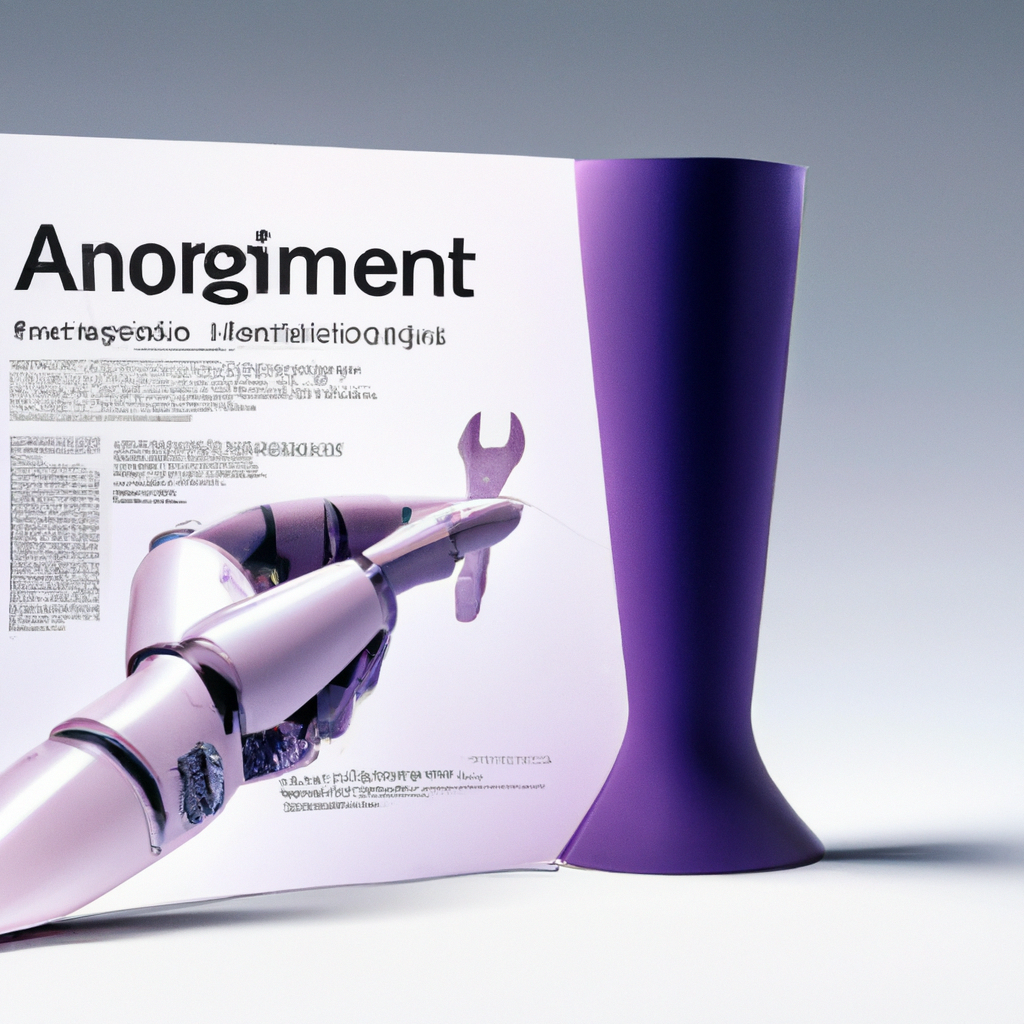What Is Product Creation With A.I. And How Does It Work? Imagine having a digital assistant that could effortlessly generate new product ideas for your business, create detailed prototypes, and even provide valuable insights on market trends. That’s exactly what Product Creation with A.I. offers. In this article, we’ll explore the fascinating world of using artificial intelligence (A.I.) to revolutionize the way products are conceptualized, designed, and brought to life. From leveraging machine learning algorithms to vast data analysis, this groundbreaking approach enables businesses to optimize their product development process and stay ahead in today’s fast-paced market.
What is Product Creation with A.I.?
Defining Product Creation
Product creation refers to the process of developing and bringing a new product into the market. It involves various steps, from identifying market needs to designing, manufacturing, and promoting the product. In recent years, artificial intelligence (A.I.) has emerged as a valuable tool in product creation, revolutionizing the way businesses develop and innovate.
Introduction to Artificial Intelligence (A.I.)
Artificial intelligence is a branch of computer science that focuses on creating intelligent machines capable of executing tasks that would typically require human intelligence. A.I. systems can analyze data, recognize patterns, make predictions, and learn from their experiences. In the context of product creation, A.I. technologies can enhance efficiency, accuracy, and innovation throughout the entire process.
Benefits of Using A.I. in Product Creation
The integration of A.I. into product creation comes with numerous benefits. Firstly, A.I. can analyze vast amounts of data to gain actionable insights into market trends, customer behaviors, and competitors, enabling businesses to make informed decisions. A.I. algorithms can identify patterns, correlations, and outliers to facilitate market research and gather valuable information for product development.
Secondly, A.I. assists in concept generation by generating ideas based on market analysis and customer requirements. It can analyze customer feedback and preferences to generate innovative product concepts that align with market needs. A.I. algorithms can also help refine and optimize existing product designs, improving functionality, usability, and aesthetics.
Thirdly, A.I. aids in the design and prototyping stage by automating complex tasks. It can generate 3D models, simulate product performance, and streamline the prototyping process, reducing costs and time-to-market. A.I. algorithms can also optimize manufacturing processes, minimizing defects and improving overall quality.
Furthermore, A.I. enables efficient pricing and positioning of products by analyzing market dynamics, competition, and pricing strategies. It can determine optimal price points based on factors such as production costs, market demand, and perceived value. A.I. technologies also facilitate effective marketing and promotional campaigns by identifying target audiences, optimizing advertising channels, and personalizing promotional content.
Additionally, A.I. allows businesses to gather customer feedback and iterate on product designs. By analyzing customer reviews, sentiment analysis, and user behaviors, A.I. systems can identify areas for improvement and guide the development of future iterations. This iterative process ensures that products meet customer expectations, leading to greater satisfaction and loyalty.
Finally, A.I. plays a crucial role in scaling and optimization. A.I.-powered algorithms can analyze production data, identify bottlenecks, and optimize manufacturing processes for increased efficiency and productivity. By continuously monitoring and analyzing data, A.I. systems can adapt to changing market conditions and make data-driven decisions to improve operations and drive business growth.

How Does Product Creation with A.I. Work?
Data Gathering and Analysis
Product creation with A.I. begins with data gathering and analysis. A.I. systems can collect and process vast amounts of data from various sources, such as market research reports, customer surveys, social media, and online reviews. By analyzing this data, businesses can gain insights into market needs, customer preferences, and emerging trends.
Through machine learning algorithms, A.I. can identify patterns, correlations, and anomalies in the data. This analysis helps businesses understand consumer behavior, identify gaps in the market, and uncover opportunities for product development.
Identifying Market Needs
A.I. technologies assist in identifying market needs by analyzing customer data and feedback. By understanding customer preferences, pain points, and desires, businesses can tailor their product development efforts to meet specific demands. A.I. algorithms can analyze customer reviews, sentiment analysis, and social media interactions to gain a deeper understanding of what customers want and need.
By identifying gaps in the market and understanding customer pain points, businesses can develop innovative products that cater to unmet needs, giving them a competitive advantage in the market.
Concept Generation
A.I. plays a significant role in concept generation by generating ideas based on market research and customer requirements. A.I. algorithms can analyze market trends, competitor offerings, and customer feedback to generate novel product concepts. By leveraging machine learning and natural language processing techniques, A.I. can identify patterns and draw insights that humans may not have recognized.
These A.I.-generated concepts serve as the foundation for product development, providing businesses with innovative ideas that align with market needs and customer preferences.
Design and Prototyping
A.I. technologies streamline the design and prototyping phase of product creation. A.I.-powered tools can generate 3D models, simulate product performance, and optimize designs for manufacturability. By automating complex design tasks, A.I. reduces human error and accelerates the prototyping process.
A.I. systems can also generate multiple design iterations, allowing businesses to explore various possibilities and select the most optimal design. This iterative design process, guided by A.I., ensures that the final product meets functional, aesthetic, and ergonomic requirements.
Manufacturing and Production
A.I. enhances manufacturing and production processes by optimizing operations and improving quality. A.I.-driven algorithms can analyze production data in real-time, identifying bottlenecks, predicting machine failures, and optimizing scheduling.
By leveraging predictive analytics, A.I. can anticipate maintenance needs, reducing downtime and increasing overall productivity. Additionally, A.I. can identify and minimize defects, improving the quality of the final product.
Testing and

Quality Assurance
A.I. plays a crucial role in testing and quality assurance, ensuring that products meet industry standards and customer expectations. A.I.-powered systems can automate testing processes, perform quality checks, and identify potential issues.
Through machine learning algorithms, A.I. systems can learn from previous testing results and continuously improve the accuracy and efficiency of the quality assurance process.
Pricing and Positioning
A.I. assists businesses in pricing and positioning their products effectively. By analyzing market dynamics, competitor pricing strategies, and customer data, A.I. algorithms can determine optimal price points based on factors such as production costs, market demand, and perceived value.
A.I. technologies also enable businesses to personalize pricing strategies for different customer segments, maximizing profitability while meeting customer expectations.
Marketing and Promotion
A.I. supports businesses in developing effective marketing and promotional strategies. A.I.-powered tools can analyze customer data, identify target audiences, and optimize advertising channels. By understanding customer preferences and behaviors, businesses can create personalized marketing content and deliver it through the most appropriate channels.
A.I. can also analyze the performance of marketing campaigns, provide insights into customer engagement, and make recommendations for optimizing future marketing efforts.
Customer Feedback and Iteration
A.I. enables businesses to gather customer feedback and iterate on product designs. By analyzing customer reviews, sentiment analysis, and user behaviors, A.I. systems can identify areas for improvement and guide the development of future iterations.
The iterative process, driven by A.I., ensures that products evolve to meet changing customer needs and expectations, fostering customer satisfaction and loyalty.
Scaling and Optimization
A.I. supports businesses in scaling and optimizing their operations. By analyzing production data, A.I. algorithms can identify inefficiencies, bottlenecks, and opportunities for improvement. This data-driven approach allows businesses to optimize manufacturing processes, reduce costs, and increase productivity.
Furthermore, A.I.-powered systems can analyze market trends, customer behaviors, and competition to adapt business strategies and drive growth. By continuously monitoring and analyzing data, businesses can make informed decisions and stay ahead in the market.
What Is Product Creation With A.I. And How Does It Work?
In conclusion, product creation with A.I. revolutionizes the way businesses develop and innovate. By leveraging A.I. technologies, businesses can gather and analyze data, identify market needs, generate innovative concepts, streamline design and prototyping, optimize manufacturing processes, and make data-driven decisions for pricing, marketing, and operational optimization. A.I. enables businesses to stay competitive in the fast-paced and ever-evolving market landscape, ultimately leading to the creation of successful and customer-centric products.
